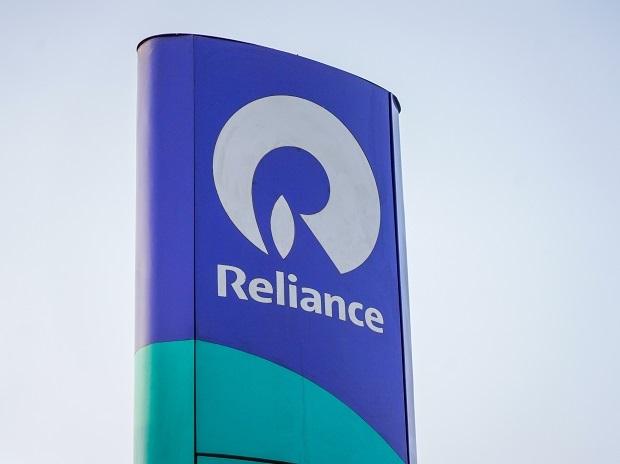
Ambani buys Norway’s REC Solar Holdings from China’s Bluestar for $771 mn
Last Updated on December 22, 2022 by Admin
[ad_1]
Mukesh Ambani-controlled Reliance New Energy Solar (RNESL), a wholly-owned subsidiary of Reliance Industries (RIL), has acquired REC Solar Holdings AS (REC Group) from China National Bluestar (Group). An RIL statement said the transaction is for an Enterprise Value of $771 million.
While the REC Group is based in Norway, it was controlled by the Chinese government-owned China National Chemical Corporation (ChemChina), which holds 79.5 per cent stake in China National Bluestar (Group) Company. Bluestar had acquired REC Solar in 2014 for $640 million.
“REC is headquartered in Norway and has its operational headquarters in Singapore and regional hubs in North America, Europe, Australia, and Asia-Pacific. The 25-year-old company has three manufacturing facilities-–two in Norway for making solar grade polysilicon and one in Singapore making PV cells and modules,” the RIL statement added.
Back in 2014, REC Group was facing high costs and price competition from other Chinese solar equipment manufacturers. The decision to shift operational headquarters and manufacturing facilities out of Norway was aimed at lowering costs.
According to a report by Jefferies India, REC is the only company globally to commercialise tech that consumes 75 per cent less power than Chinese companies. “REC has implemented the Fluidized Bed Reactor (FBR) tech for producing polysilicon on a commercial scale. The FBR process consumes 75-80 per cent less energy than the traditional Siemens process that Chinese players use. REC’s plants have a long operating history of reliability and quality,” the report said.
According to RIL, REC has over 600 utility and design patents, of which 446 are granted and balance are under evaluation. “It always had a strong focus on research and development and now, coupled with Reliance’s world-class innovation, scale, and operational excellence, will further accelerate path breaking technological developments and introduction of new products,” RIL said.
In January 2021, China’s Patent Office upheld the validity of REC’s split cell and junction box technology patent. According to REC, this technology, that was developed in-house, is a key feature of REC Group’s advanced solar panels. REC Group had raised the dispute to protect its intellectual property through a patent infringement lawsuit against Korea-based Hanwha Q Cells in February 2020.
More recently, in May this year, REC announced the launch of its TwinPeak 4 Series, the fourth generation of its premium solar panels for residential and commercial rooftop installations.
REC can currently produce 1.8 gigawatts (GW) of solar panels annually. It has around 10 GW of installed solar power generation capacity around the world.
“Reliance will strongly support REC’s planned expansions including 2-3 Gw Cells and Module capacity in Singapore, brand new 2 Gw Cells and Module unit in France and another 1 Gw Modules plant in the US,” the RIL statement said.
“In India, Reliance plans to use this industry leading technology in their fully integrated, metallic Silicon to PV Panel manufacturing giga factory at Dhirubhai Ambani Green Energy Giga Complex, Jamnagar initially starting with 4 Gw per annum capacity and eventually growing to 10 GW per annum,” the statement added.
Commenting on the acquisition, RIL’s Chairman Ambani said, “It (the acquisition) is in line with our strategy of investing in new and advanced technologies and operating capabilities aimed at achieving Reliance’s goal of enabling 100 Gw clean and green energy before the end of this decade.”
“Together with our other recent investments, Reliance is now ready to set up a global scale integrated Photovoltaic Giga factory and make India a manufacturing hub for lowest cost and highest efficiency solar panels,” Ambani added.
 Dear Reader,
Dear Reader,
Business Standard has always strived hard to provide up-to-date information and commentary on developments that are of interest to you and have wider political and economic implications for the country and the world. Your encouragement and constant feedback on how to improve our offering have only made our resolve and commitment to these ideals stronger. Even during these difficult times arising out of Covid-19, we continue to remain committed to keeping you informed and updated with credible news, authoritative views and incisive commentary on topical issues of relevance.
We, however, have a request.
As we battle the economic impact of the pandemic, we need your support even more, so that we can continue to offer you more quality content. Our subscription model has seen an encouraging response from many of you, who have subscribed to our online content. More subscription to our online content can only help us achieve the goals of offering you even better and more relevant content. We believe in free, fair and credible journalism. Your support through more subscriptions can help us practise the journalism to which we are committed.
Support quality journalism and subscribe to Business Standard.
Digital Editor
[ad_2]
Source link




